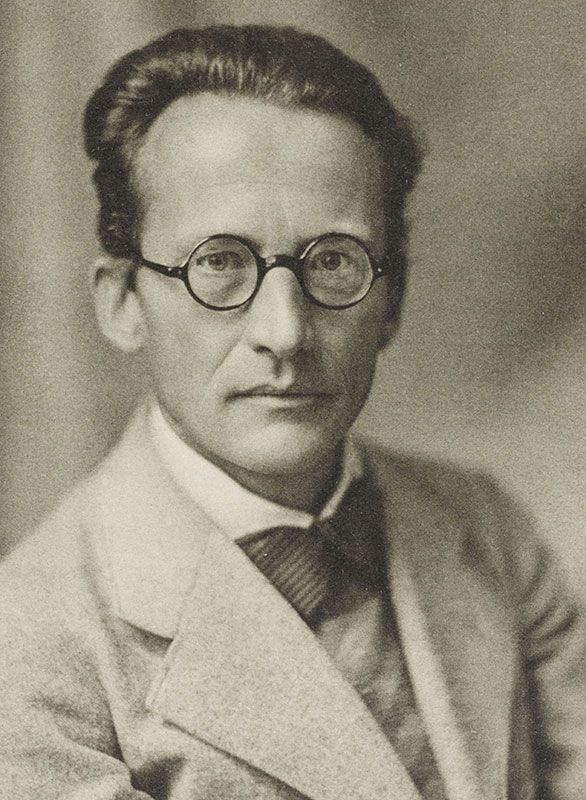Welcome to Facts Vibes, where we delve into intriguing tidbits about the world around us. Today, let’s unravel Erwin Schrödinger‘s enigmatic life with a collection of interesting facts that go beyond his famous thought experiment. Join us as we uncover the lesser-known facets of this brilliant mind.
Exploring the Intriguing Life of Erwin Schrödinger: 5 Fascinating Facts
Erwin Schrödinger was a renowned Austrian physicist who made significant contributions to the field of quantum mechanics. Here are 5 Fascinating Facts about his intriguing life:
1. Dual Citizenship: Erwin Schrödinger held dual citizenship in both Austria and Ireland. He became the Director of the School for Theoretical Physics at the Dublin Institute for Advanced Studies in 1940.
2. Schrödinger Equation: He formulated the famous Schrödinger Equation, which describes how the quantum state of a physical system changes over time. This pivotal work earned him the Nobel Prize in Physics in 1933.
3. Cat Paradox: Schrödinger is also known for the Schrödinger’s Cat Paradox, a thought experiment on quantum mechanics involving a hypothetical cat that may be simultaneously alive and dead until observed.
4. Published Works: He authored several influential books, including “What is Life?” in which he explored the connection between physics and biology, inspiring further research in molecular genetics.
5. Philosophical Interests: Beyond his scientific accomplishments, Schrödinger was deeply interested in philosophy and metaphysics, delving into the nature of reality and consciousness.
These facts shed light on the multifaceted nature of Erwin Schrödinger’s life, leaving a lasting impact on the world of physics and philosophy.
Most popular facts
Erwin Schrödinger was an Austrian physicist and a Nobel Prize winner in Physics.
Erwin Schrödinger was an Austrian physicist and a Nobel Prize winner in Physics.
He is best known for his development of the Schrödinger equation, which is a fundamental equation in quantum mechanics.
Erwin Schrödinger is best known for his development of the Schrödinger equation, which is a fundamental equation in quantum mechanics.
Schrödinger proposed the famous “Schrödinger’s cat” thought experiment to illustrate the concept of quantum superposition.
Erwin Schrödinger proposed the famous “Schrödinger’s cat” thought experiment to illustrate the concept of quantum superposition.
He also made significant contributions to the understanding of wave mechanics and wave equations.
His significant contributions were in the understanding of wave mechanics and wave equations.
Schrödinger was awarded the Nobel Prize in Physics in 1933 for his formulation of the wave equation.
Schrödinger was awarded the Nobel Prize in Physics in 1933 for his formulation of the wave equation.
In addition to his work in physics, he was also interested in philosophy and wrote on the implications of quantum mechanics for our understanding of reality.
He was interested in philosophy and wrote on the implications of quantum mechanics for our understanding of reality in addition to his work in physics.
Schrödinger’s wave equation has had a profound impact on the development of modern quantum theory and its applications.
Schrödinger’s wave equation has had a profound impact on the development of modern quantum theory and its applications.
He held academic positions at various universities, including the University of Zurich, University of Berlin, and Dublin Institute for Advanced Studies.
Sure! The important information in the given sentence is: He held academic positions at various universities, including the University of Zurich, University of Berlin, and Dublin Institute for Advanced Studies.
Schrödinger actively opposed the Nazi regime and left Germany in 1938, eventually settling in Ireland.
Yes, Schrödinger actively opposed the Nazi regime and left Germany in 1938, eventually settling in Ireland.
His work laid the foundation for the modern understanding of quantum physics and its mathematical formalism.
His work laid the foundation for the modern understanding of quantum physics and its mathematical formalism.
Schrödinger’s research also explored the nature of life and biological systems, leading him to develop the concept of “negative entropy” in biological systems.
Schrödinger’s research explored the nature of life and biological systems, leading him to develop the concept of “negative entropy” in biological systems.
He was known for having a deep interest in Eastern philosophy and spirituality, particularly Vedanta.
He was known for having a deep interest in Eastern philosophy and spirituality, particularly Vedanta.
Schrödinger’s contributions to quantum mechanics have had a lasting impact on the fields of physics, chemistry, and engineering.
Schrödinger’s contributions to quantum mechanics have had a lasting impact on the fields of physics, chemistry, and engineering.
He was a prolific writer, publishing influential books such as “What Is Life?” and “Mind and Matter.”
He was a prolific writer, publishing influential books such as “What Is Life?” and “Mind and Matter.”
Schrödinger’s legacy continues to influence the study of quantum mechanics and the philosophical implications of the theory.
Schrödinger’s legacy continues to influence the study of quantum mechanics and the philosophical implications of the theory in the context of Information and facts.
In conclusion, Erwin Schrödinger was a fascinating figure whose contributions to quantum mechanics and his groundbreaking thought experiment, the Schrödinger’s cat paradox, continue to inspire and challenge our understanding of the universe. His insights into the nature of reality and the behavior of particles have had a profound impact on the field of physics and continue to shape our scientific inquiries into the fundamental nature of existence.
